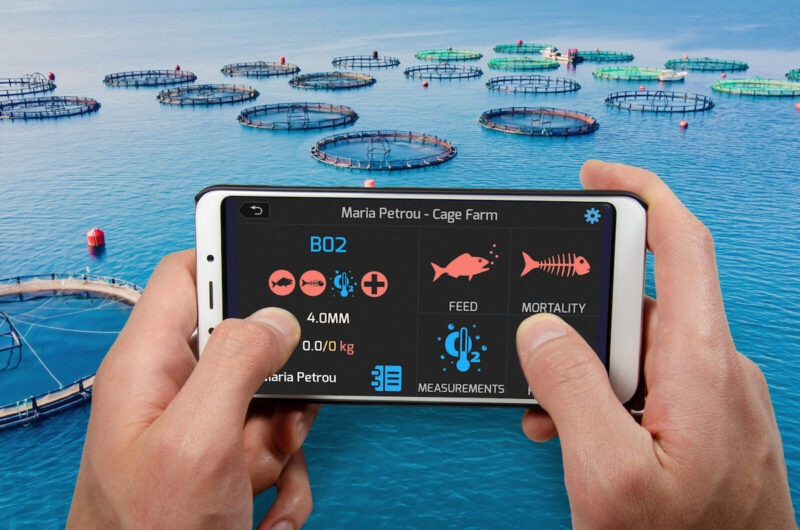Aquaculture tech companies showcase innovations to Canadian MPs
MPs to get a first-hand understanding on how new technologies continue to make aquaculture a low-impact, eco-friendly way to raise protein.
By Fabian Dawson
SeaWestNews
Some of world’s top aquaculture technology companies will be showcasing their innovations to MPs in Ottawa tomorrow to foster further collaborations and understanding between policymakers and industry stakeholders.
The B.C Salmon Farming Innovation Breakfast organised by the Canadian Aquaculture Industry Alliance (CAIA) is an event that allows the companies to engage with parliamentarians in constructive dialogue with a focus on sustainability, environmental stewardship, and technological developments.
“Many Members of Parliament can’t get to salmon farms to see and understand the very high level of innovation going into the farms. Without seeing and experiencing the farms, unfortunately many have a very dated understanding of a salmon farm,” said Tim Kennedy, President and CEO of CAIA.
“We want to bring the technology to Ottawa to help people better understand how advanced and innovative farm sites are today – in a sense, bring the farm to Ottawa,” he told SeaWestNews.
“We are on the cusp of major changes in Artificial Intelligence, individualized fish health, information management, fish growth, net pen technology and new ways of undertaking research that will propel us into a new phase of sustainable fish farming. The companies presenting in Ottawa are showing and telling what they are doing to build understanding about this innovative sector,” said Kennedy.
The breakfast showcase comes as the Federal Government works with the industry, First Nations, coastal communities and other stakeholders to come up with a Transition Plan for salmon farming in British Columbia. The Transition Plan, expected later this year, will impact more than 4,700 jobs and $1.2 billion in economic activity annually in British Columbia.
Brian Kingzett, Executive Director of the BC Salmon Farmers Association (BCSFA) said : “The tech showcase provides a glimpse into the array of innovative technologies that we hope to introduce to the BC sector, with the goal of enhancing sustainability.”
Among the seven companies participating in the event is the Campbell River-based Poseidon Ocean Systems Ltd which provides a wide range of bespoke clean-tech products and services tailored to both the local and international aquaculture and marine industries.
Heather Clarke, co-founder of the Poseidon Ocean Systems Ltd. said her Campbell River team has a track record for rapid innovation and product development cycles. In the last four years the Poseidon team has brought four distinct, proprietary products from white paper to commercialization.
Those include robust sea-cage systems, physical and bubble barriers and cutting-edge oxygen systems, which helps ocean farms avoid naturally occurring oceanic threats such as plankton blooms, hypoxia, and sea lice.
“This success has been made possible by our team of talented engineers as well as our customers being incredibly receptive to new technology—this is a message that our government needs to hear,” said Clarke.
Another of the companies at the event will be the Norway-based Stingray Marine Solutions AS , which develops intelligent aquaculture technology that contributes to increased food production at salmon farms.
“We are happy to be invited and this is a good opportunity to show people in Canada how we are working in Norway with more than 30 salmon farmers,” said John Arne Breivik, Stingray’s general manager.
Stingray has developed a patented solution for optical delousing of salmon and trout using laser technology, which provides for image-based lice counting that results in a better overview of the parasite infection. The technology also monitors the health and growth of farmed fish.
The company has installed more than 1,000 of its laser units along the coast of Norway in around 70 fish farms.
“Our technology monitors and protects more than 60 million salmon and trout in 500-600 pens,” said Breivik.
“Several good tools for better fish welfare and sustainability and modern technologies have already been proven in Norway and can be adopted in Canada in a short time going forward.”
Doug Hanchett, director of communications for Innovasea, said his company is excited to demonstrate to elected leaders and government officials how its technology is helping the aquaculture industry get smarter, safer and more sustainable.
Innovasea has developed an AI-powered solution that estimates the size and weight of fish stocks in real time to help farms optimize production and reduce feeding costs. It also provides accurate growth projections to improve resource planning and sales forecasting and ultimately boost revenues.
The technology called BiomassPro is currently in use at farms in Canada, Chile, New Zealand, the United States, Mexico, Central America and the Mediterranean region.
“Much of the criticism of fish farming stems from old, outdated beliefs and preconceptions. As an aquaculture technology company, our work is focused on improving sustainability. That includes everything from technologies that reduce feed waste to lessen a farm’s impact on the surrounding ecosystem to solutions that can automate energy-intensive operations like aeration and oxygenation to shrink its carbon footprint,” said Hanchett.
“Broadly speaking, we believe aquaculture is vital to feeding the planet’s growing population and we know it can be done sustainably as a complement – not a competitor – to wild catch fishing.
“And with the AI revolution underway, new technologies and techniques are going to continue to make aquaculture a low-impact, eco-friendly way to raise protein.”
(Image courtesy of Innovasea shows its ocean farm management software in use)

